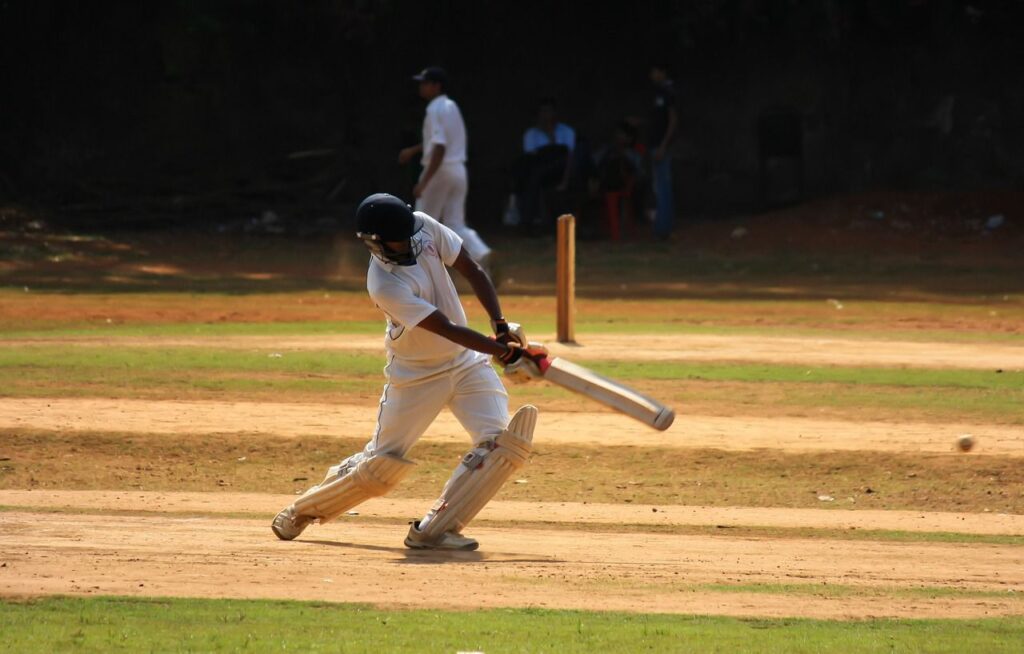IIT Madras to Allocate Rs 5 Crore for Sports Start-Ups, Introduce Sports Science Program
Share
At the Sports Tech Start-Up Conclave on July 11-12, IIT Madras announced plans to invest Rs 5 crore in sports start-ups and launch a 4-year sports science program. This initiative aims to drive technological innovation in India’s sports industry.

The Indian Institute of Technology Madras hosted a mega ‘Sports Tech Start-Up Conclave’ in New Delhi on July 12-13, 2024. It was deliberated upon by the Centre of Excellence in Sports Science and Analytics with the principal objective of increasing indigenization and technological support to the Atmanirbhar Bharat initiative in the sports sector. They had sponsored the conclave by key sponsors like Dream Sports, Vedanta, and SFA Play for their tome of work. This resonates with IIT Madras’s commitment to incubating sports startups and goes well with the Indian Government’s ambitious plans of having home-ground advantage for Olympics in 2036.
During the conclave, some innovative start-ups got the chance to present a number of pioneering ideas before the esteemed panel of judges. These included vision technology-based apps that could enhance cricket training sessions, athlete management systems across the country, and innovative sports learning platforms. These presentations reflected manpower uses of technology in transforming different facets of sports training and management and fell in perfectly with the broader goals of the conclave.
The institutes declared a ₹5-crore investment fund for the incubation of the top 10 sports tech startups, to be mentored by IIT Madras. Furnished details also brought out that these startups would be provided incubation support by IIT Madras Pravartak Technologies. Indeed, the big picture is to incubate at least 200 Sports Technology Startups in five years and nurture a culture of innovation big time within the sports sector.
IIT Madras director Professor V Kamakoti mentioned, “With the ever-increasing intervention of technology in sports, IIT Madras is committed to bringing sports and technology together. We believe that the market will be huge for sports technology.” He even spoke about the need for developing indigenous products for Indian athletes, which would track their health and progress of an individual in a particular sport.
Complementing these technological developments, IIT Madras announced a raft of new academic programs in sports education. From introducing a new 4-year Bachelor of Sports Science course to proposing, in due course, Bachelor and Master’s degrees in Sports Management—each of these courses would have strong industry connect, with inroads into AI/ML and Data Science Certificate Courses used with instances and examples in sports. Moreover, IIT Madras CESSA aims to introduce within a few months five new sports courses on the NPTEL platform, which will expand educational opportunities in Sports Science.
The institution also launched the ‘EduSwasth’ program that sought to integrate technology with physical education at the school level. It makes use of innovative IP hardware solutions and IoT devices, which help capture the complete data of student physical education sessions, with a robust analytics suite that provides actionable insights. Brig. Dr. Bibhu Kalyan Nayak, Head of the NCSSR, emphasized his institute’s role in supporting high-performing athletes and in collaborating with IIT Madras in future initiatives. “Our mission has to be athlete-centric. We need to create an enabling ecosystem that caters to the needs and issues of our athletes,” he underlined.
The second thematic area on which IIT Madras CESSA had been relentless was promoting chess at the grassroots through digital platforms and anti-cheating technologies. These include plans to create a powerful digital destination for chess content and training to emanate from India, accompanied by activities to popularize the game and involve local chess players so that the entire ecosystem benefits everybody financially. Professor Kamakoti reaffirmed IIT Madras’s commitment to sports education and technology, especially the sport of chess, saying, “Chess is a very interesting, thought-provoking game; it’s got a lot of pattern-matching and strategies.”. He added that high-performance computing and artificial intelligence could very soon be pivotal in training for chess players, facilitates the running through of a lot of scenarios and designs the best game plan.
The high-powered panel deliberations attached focus to some other key issues that comprised technology support for enhancing athletes’ performance, science behind sports nutrition, support for grassroots sportspersons and para-athletes, gamification of sports, etc. A host of radical recommendations relating to collaboration between sports federations, technology companies, media platforms, and research and development entities were mooted with a view to making the game coverage engrossing and comprehensive.
Looking ahead, IIT Madras CESSA visualizes various up-gradation of skill courses, workshops, and training programs targeted at the sports value chain, including sportspersons, physical education instructors, coaches, referees, analysts, sport physiologists, nutritionists, umpires, sports presenters, and management staff. Of course, this will be topped by developing analytics for media platforms and exposure to various sports tech start-ups incubated at IIT Madras for creating a comprehensive sports ecosystem driven by technology.







